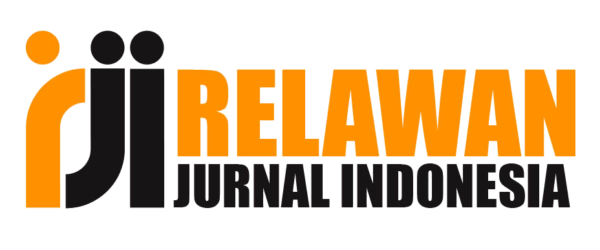PEMBELAJARAN BERBASIS STEM MELALUI PELATIHAN ROBOTIKA
Abstract
ABSTRAK
Telah dilakukan pelatihan robotika di salah satu SMA Kota Bandung. Pelatihan robotika ini menjadi salah satu media untuk mengajarkan pelajaran fisika. Melalui robotika dapat menumbuhkan pendidikan STEM (science, technology, engineering and mathematics) dan meningkatkan kemampuan berpikir logis, kreatif, inovatif, problem solving, dan kemampuan bekerjasama dalam tim. Metode dalam penelitian ini adalah Pre-Experimental Design, metode deskriptif melalui observasi, penilaian angket, dan wawancara siswa. Hasil yang diperoleh ialah sebanyak 90% siswa dapat memahami materi pengenalan arduino, sinyal analog, dan pengenalan bahasa pemrograman. Sebanyak 98% sudah mampu merakit robot. Sebanyak 95% dapat menginput dan mengkoneksikan bahasa pemrograman ke dalam bluetooth untuk dihubungkan ke robot. Sebanyak 85% siswa memahami cara menganalisis data melalui grafik dan memverifikasinya dengan data dari robot.
Kata Kunci: robotika, fisika, STEM
ABSTRACT
Robotics training has been done in one of the high schools of Bandung. This robotics training became one of the media to teach physics lesson. Through robotics can grow STEM education (science, technology, engineering and mathematics) and improve the ability to think logically, creatively, innovatively, problem solving, and ability to work together in teams. Methods in this research are Pre-Experimental Design, descriptive method through observation, questionnaire assessment, and student interview. The results obtained are as much as 90% of students can understand the material introduction arduino, analog signals, and the introduction of programming languages. As many as 98% have been able to assemble robots. As many as 95% can input and connect programming language into bluetooth to robot. As many as 85% of students understand how to analyze data through graphs and verify them with data from robots
Keywords: robotics, physics, STEM
Full Text:
PDF (Bahasa Indonesia)References
D. Alimisis. (2013). Educational Robotics: New challenges and Trends,
Themes in Science and Technology Education, vol. 6, pp. 63-71.
Eguchi, A. (2013). Educational Robotics for Promoting 21st Century Skills. Journal of Automation Mobile Robotics and Intelligent Systems, 8(1), 5-11.
Afari, E., Khine, M. (2017). Robotics as an Education Tool: Impact of Lego Mindstorms. International Journal of Information and Education Technology. Vol. 7, No 6.
Carin, Arthur R. & Skrofronik, James G.(1997). Teaching Science Through Discovery. Columbus, Charles E. Merril Publishing.
Asri, Y. N., Rusdiana, D. & Feranie, S. (2017). ICARE Model Integrated With Science Magic to Improvement of Student’s Cognitive Competence In Heat and Temperature Subject. Advance in Social Science, Education and Humanities Research. Volume 57.
Johnson, D. M., Wardlow, G. W. & Franklin, T. D. (1997). Hands-on Activities Versus Worksheets in Reinforcing Physical Science Principles: Effects on student achievement and Attitude. Journal of Agricultural Education, 38(3), 9-17.
Haryanti, Anti. Suwarma I. Rahma. (2018). Profil Keterampilan Komunikasi Siswa SMP Dalam Pembelajaran IPA Berbasis STEM. Jurnal Wahana Pendidikan Fisika. Vol 3 No 1: 49-54
Chew Cheng Meng, Noraini Idris & Leong Kwan Eu (2014). Secondary Students' Perceptions of Assessments in Science, Technology, Engineering, and Mathematics (STEM). Eurasia Journal of Mathematics, Science & Technology Education, 10(3), 219-227.
Turner, K.B. (2013). Northeast Tennessee Educators’ Perception of STEM Education Implementation. Doctor of Education Dissertation, East Tennessee State University
Sugiyono. (2012). Metodologi Penelitian Pendidikan Pendekatan Kuantitatif, Kualitatif dan R & D. Bandung: Alfabeta
Septiani, Restina., Rusnayati, H., Siahaan, P., Wijaya, A. (2018). Profil Hambatan Belajar Epistimologis Siswa Pada Materi Suhu dan Kalor Kelas XI SMA Berbasis Analisis Tes Kemampuan Responden. Jurnal Wahana Pendidikan Fisika. Vol 3. No. 1: 29-34
DOI: https://doi.org/10.17509/wapfi.v3i2.13735
Refbacks
- There are currently no refbacks.
Copyright (c) 2018 Wahana Pendidikan Fisika
The Journal Wahana Pendidikan Fisika http://ejournal.upi.edu/index.php/WapFi/ is licensed under a Creative Commons Attribution-ShareAlike 4.0 International License
The Journal WaPFi (Wahana Pendidikan Fisika).
All rights reserverd. pISSN 2338-1027 eISSN 2685-4414
Copyright © Faculty of Mathematics and Science Education (FPMIPA) Universitas Pendidikan Indonesia (UPI)










